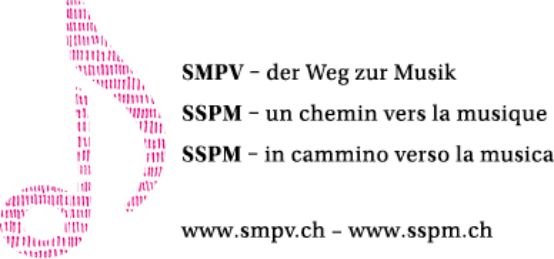Working conditions for music teachers
Is private teaching recognized? A music teacher who joins a music school and is informed of his or her position on the salary scale can legitimately ask himself or herself this question. What exactly is considered professional experience?
Music teacher: a job with variable geometry
Most music teachers go through several difficult semesters with varying hourly loads, and often even have to divide their time between different music schools. At the same time, they give private lessons, which may represent a complementary activity or their main source of income. As a result, professional experience is the result, on the one hand, of years of practice in music schools, i.e. within an institutional framework, and on the other, of professional experience acquired through private lessons, i.e. outside an institution. The opportunities for commitment differ according to the instrument; guitar, piano and flute teachers are more likely to obtain fixed hourly loads over several semesters than their colleagues who teach harp or bassoon. But can music teachers obtain recognition for all the professional experience they have acquired in both institutional and private settings, and be paid accordingly?

Image enhancement through professional association
This kind of situation can be found in other professional sectors, such as speech therapy, psychotherapy and counseling. What conditions must be met for lessons given in a "private", non-institutional setting to be recognized as professional work and compensated accordingly? In general, lessons are paid for on a one-to-one basis. To support demand, professionals join an association. This is not only demanding, it also enhances their image, as it is seen by the public as the guarantor of certain quality criteria (diploma, continuing education, adherence to a code of ethics, reputation, etc.). Professional associations publish the names and contact details of their members for potential customers. The SSPM's list of private music teachers is part of this process. It allows you to discover music teachers, access their websites, and find out about their professional experience and skills.
In addition to providing support for its members, one of the association's major challenges is to defend the profession. It enables professionals to define standards and assert them through negotiations and/or public awareness campaigns. The association offers them a structure through which they can speak with one voice and coordinate their efforts to improve working conditions. It is also a place where knowledge of best practices can be gathered. It's important to remember that institutions such as music schools, whose funding and organization depend on the municipal context, don't always defend the interests of professionals. How many minutes does a lesson last? How much time does a music teacher need for preparation and follow-up? Practice cannot offer ideal con-ditions, but it can strive to improve them. The association defines rules of good practice and calls for them to be applied. It defends innovative approaches and gives them a voice. As a specialist, it gives the profession a profile - and defends it.
Teaching quality
Music schools proceed in a similar way. They adopt guidelines, define the organization of management and procedures, and guarantee the quality of their offering. Accordingly, they require prospective teachers to prove that they have high-quality professional experience, for example by submitting a portfolio and passing an audition. They also ensure that students or their parents can complain to the school management in the event of a problem. On top of this comes the continuous development of the teachers, documented by staff appraisals. Ultimately, it's the attachment to an institution that creates recognized professional experience. But what about private teaching? Doesn't it represent recognized professional experience?
The institution to which private music teachers can refer is their professional association. For example, the SSPM provides them with a model contract in which objectives, scope and duration of teaching, rules for absences, etc. are defined. For teachers, this contract becomes more than just a "simple" binding agreement with their students, as soon as it is supplemented by documentation of the lessons given and simple proof of customer satisfaction. This demonstrates that professional experience has been acquired. Another important element is the appeal procedure. Any professional activity involving two people involves the risk of overstepping boundaries. These may be deliberate or unconscious, or they may just be pretended. No one is immune to these situations, which are a source of suffering and a detriment to the profession. The fact that teachers designate a professional and neutral appeal body to which everyone can turn is also a testament to the quality of private education. Providing such a body could also be one of the association's services, given that defending the profession is one of its primary objectives.
Will private teaching soon be recognized as a professional experience in its own right, or is it already? Would a few small innovations be enough to obtain this recognition? The Zurich section is delighted that a debate is taking place on this issue.
On behalf of the SSPM Zurich Committee, Myrtha Meuli
Is private teaching recognized? A music teacher who joins a music school and is informed of his or her position on the salary scale can legitimately ask himself or herself this question. What exactly is considered professional experience?
Music teacher: a job with variable geometry
Most music teachers go through several difficult semesters with varying hourly loads, and often even have to divide their time between different music schools. At the same time, they give private lessons, which may represent a complementary activity or their main source of income. As a result, professional experience is the result, on the one hand, of years of practice in music schools, i.e. within an institutional framework, and on the other, of professional experience acquired through private lessons, i.e. outside an institution. The opportunities for commitment differ according to the instrument; guitar, piano and flute teachers are more likely to obtain fixed hourly loads over several semesters than their colleagues who teach harp or bassoon. But can music teachers obtain recognition for all the professional experience they have acquired in both institutional and private settings, and be paid accordingly?

Image enhancement through professional association
This kind of situation can be found in other professional sectors, such as speech therapy, psychotherapy and counseling. What conditions must be met for lessons given in a "private", non-institutional setting to be recognized as professional work and compensated accordingly? In general, lessons are paid for on a one-to-one basis. To support demand, professionals join an association. This is not only demanding, it also enhances their image, as it is seen by the public as the guarantor of certain quality criteria (diploma, continuing education, adherence to a code of ethics, reputation, etc.). Professional associations publish the names and contact details of their members for potential customers. The SSPM's list of private music teachers is part of this process. It allows you to discover music teachers, access their websites, and find out about their professional experience and skills.
In addition to providing support for its members, one of the association's major challenges is to defend the profession. It enables professionals to define standards and assert them through negotiations and/or public awareness campaigns. The association offers them a structure through which they can speak with one voice and coordinate their efforts to improve working conditions. It is also a place where knowledge of best practices can be gathered. It's important to remember that institutions such as music schools, whose funding and organization depend on the municipal context, don't always defend the interests of professionals. How many minutes does a lesson last? How much time does a music teacher need for preparation and follow-up? Practice cannot offer ideal con-ditions, but it can strive to improve them. The association defines rules of good practice and calls for them to be applied. It defends innovative approaches and gives them a voice. As a specialist, it gives the profession a profile - and defends it.
Teaching quality
Music schools proceed in a similar way. They adopt guidelines, define the organization of management and procedures, and guarantee the quality of their offering. Accordingly, they require prospective teachers to prove that they have high-quality professional experience, for example by submitting a portfolio and passing an audition. They also ensure that students or their parents can complain to the school management in the event of a problem. On top of this comes the continuous development of the teachers, documented by staff appraisals. Ultimately, it's the attachment to an institution that creates recognized professional experience. But what about private teaching? Doesn't it represent recognized professional experience?
The institution to which private music teachers can refer is their professional association. For example, the SSPM provides them with a model contract in which objectives, scope and duration of teaching, rules for absences, etc. are defined. For teachers, this contract becomes more than just a "simple" binding agreement with their students, as soon as it is supplemented by documentation of the lessons given and simple proof of customer satisfaction. This demonstrates that professional experience has been acquired. Another important element is the appeal procedure. Any professional activity involving two people involves the risk of overstepping boundaries. These may be deliberate or unconscious, or they may just be pretended. No one is immune to these situations, which are a source of suffering and a detriment to the profession. The fact that teachers designate a professional and neutral appeal body to which everyone can turn is also a testament to the quality of private education. Providing such a body could also be one of the association's services, given that defending the profession is one of its primary objectives.
Will private teaching soon be recognized as a professional experience in its own right, or is it already? Would a few small innovations be enough to obtain this recognition? The Zurich section is delighted that a debate is taking place on this issue.
On behalf of the SSPM Zurich Committee, Myrtha Meuli








